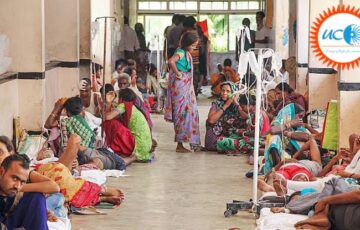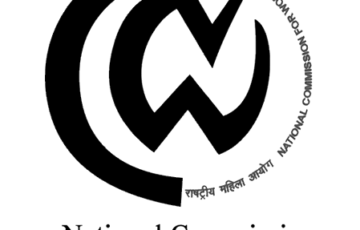Q. Discuss the role that the Public Health Management Cadre (PHMC) can play in addressing the concerns faced by public health systems in India.
| Approach
● Giving a brief introduction highlight the issues faced by the public health system in India. ● Discuss the role of Public Health Management Cadre (PHMC) in addressing these issues. ● Conclude appropriately. |
India has made considerable progress in public health over the years as seen in various sensitive indicators such as the decline in infant mortality rates, under-five mortality rates, and maternal mortality ratios.
Still several planned health goals have failed to keep pace owing to the following concerns faced by the public health system in India:
- Lack of an integrated approach to rectify public health issues related to emerging diseases, pandemics, disasters, injuries, illnesses, social and environmental issues.
- Weak public health surveillance systems for early detection, estimating disease burden and responding to various outbreaks.
- Limited understanding on the roles and the functions of public health specialists and the relevance of such cadres leading to inadequate focus on public health.
- Shortage of public health specialists as a very high level of competency is required to manage public health problems. For example, specialized skills in epidemiology, biostatics, health management and disease modeling play a critical role.
- Absence of a comprehensive Public Health Act in most states means that health officials lack the regulatory authority and powers to enforce public health legislation adequately.
- Inadequate career progression opportunities for professionals trained in public health as compared to professionals in clinical services, which results in limited interest to opt for public health as a career choice.
- Absence of transparent transfer and promotional policies in states also adversely impact the commitment and retention levels of the existing public health functionaries.
Although public health interventions are delivered by numerous functionaries at different levels, they are not organized in a separate, systematically trained public health cadre. In this context, the recently launched PHMC would address the concerns in the following ways:
- Cadre-specific career progression: It would pave the way for a clearer delineation of roles and responsibilities of medical personnel in the public sector, including career progression and incentive structures.
- Improved efficacy and efficiency of human resources: Creation of specialist cadres and division of work between clinical and non-clinical personnel would lead to better utilization of skilled personnel for complex needs of the Indian health-care delivery system and effectively handling pandemic-like situations.
- Inducting managerial capabilities: It will not only help in building high quality research and knowledge management structures but also infusing managerial expertise into health services, thereby, strengthening capacities for managerial functions as well.
- Attracting and retaining talent: Better incentives and increments as part of PHMC would attract more talent in the public health domain.
- Skill upgradation: Special pay for qualification acquired by in-service doctors would motivate the existing workforce to take up public courses for their professional growth and continued education.
Thus, a separate public health cadre along with public health training for doctors working in health administrative positions; strengthening of public health nursing cadre as well as enactment of Public Health Act would enable establishment of an effective public health system in India.






